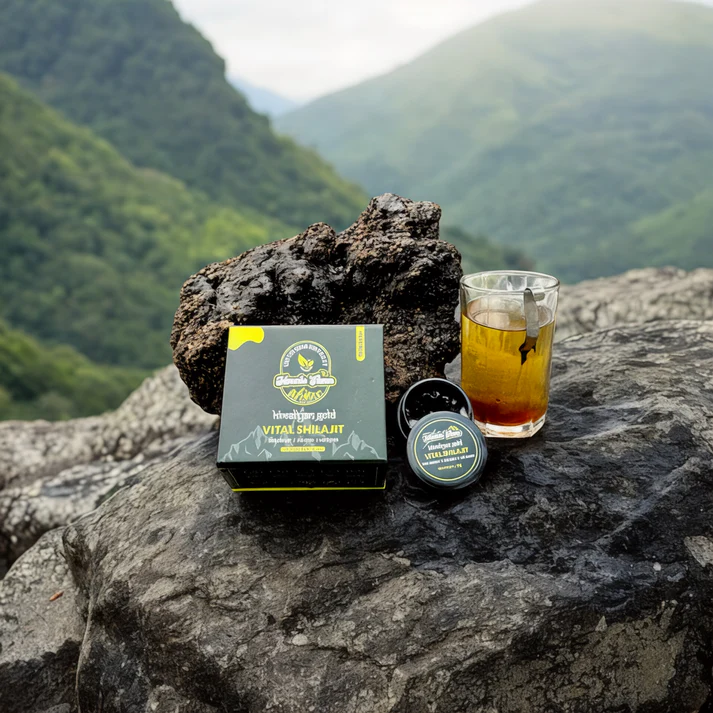Blog

Who Cannot Drink Shilajit? Health Warnings You Shouldn’t Ignore
- Habib Ullah
- September 17, 2025
- 7:37 am
- No Comments
Shilajit, often called Himalayan resin, is a natural substance praised in traditional medicine for its energy support and vitality benefits. While many people use it to improve stamina, focus, and overall well-being, not everyone should take it. Understanding who cannot drink Shilajit is essential because ignoring safety guidelines can lead to side effects or worsen existing health conditions.
Who cannot drink Shilajit?
Certain groups of people should avoid Shilajit entirely. These include children, pregnant or breastfeeding women, and individuals with specific medical conditions. Although Shilajit offers natural energy support for many, safety must come first.
Shilajit and Medical Conditions
People with chronic health issues should exercise caution. Shilajit is rich in minerals and fulvic acid, which can interact with sensitive organs.
-
Heart disease: Shilajit may affect heart rhythm and blood pressure, creating unnecessary risk.
-
Liver or kidney disorders: These organs process supplements, and extra mineral load can strain them.
-
Low blood pressure: Since Shilajit may reduce blood pressure further, those already prone to dizziness or fainting should avoid it.
-
Gout: Because Shilajit contains uric acid precursors, it can trigger flare-ups in gout patients.
If you have any of these conditions, talk to your healthcare provider before considering Shilajit.
Shilajit and Pregnancy or Breastfeeding
Expectant and nursing mothers should not consume Shilajit. No reliable studies confirm its safety during pregnancy or lactation. Since natural resins may contain heavy metals when unpurified, the risk of passing unsafe compounds to the baby remains high. For maternal health, it’s better to choose doctor-approved supplements instead.
Shilajit and Children
Children under 18 should not take Shilajit. Their bodies are still developing, and concentrated natural supplements may disrupt growth or hormone balance. For younger people seeking energy support, a nutrient-rich diet and adequate sleep are far safer choices.
Shilajit and Allergic Reactions
Although rare, some individuals may experience allergies after consuming Shilajit. This can happen due to sensitivity to resin or high mineral content. Possible signs include:
-
Skin rashes
-
Itching
-
Swelling
-
Stomach upset
If any of these symptoms appear, stop use immediately and seek medical advice.
Possible Medication Interactions
Shilajit may interact with certain medications, so combining them without guidance is risky.
-
Diabetes medicines: Shilajit can lower blood sugar, increasing the risk of hypoglycemia.
-
Blood pressure drugs: Since it may lower pressure further, using it alongside these medications can cause weakness or fainting.
-
Iron supplements: Shilajit contains iron, and excessive intake can lead to iron overload.
Who Can Benefit from Shilajit?
Although certain groups must avoid it, Shilajit can support healthy adults when taken responsibly. People looking for natural energy support, improved stamina, and better mental focus often report positive results.
Safe Use Guidelines
Even for healthy adults, safety depends on choosing the right product and following proper use.
-
Check purity: Only buy Shilajit from trusted sources that provide lab-tested results.
-
Stick to dosage: Follow the recommended daily intake, usually a pea-sized portion dissolved in water or milk.
-
Consult a doctor: Always discuss supplements with your healthcare provider, especially if you take medications.
By using these precautions, you minimize risks while making the most of Shilajit’s natural support.
Conclusion
In summary, who cannot drink Shilajit includes children, pregnant or nursing mothers, people with chronic illnesses, and those on certain medications. While Shilajit offers many benefits for healthy adults, safety should always come first. Choose only pure, authentic resin, use it in moderation, and consult your doctor before starting.
Ready to experience the best of authentic Himalayan Shilajit? Get Mountofarm’s premium-quality Shilajit today and support your health with confidence.
Latest Blog
Where to Buy Pure Shilajit: How to Identify Original vs Fake
Altai Shilajit vs Himalayan Shilajit: Which One Is More Powerful?
What Is Pure Himalayan Shilajit? Benefits, Uses & How to Identify the Real One
Our Products
Gold Graded Quality Mountofarm Vital…
Experience the unmatched benefits of pure salajeet with Mountofarm Vital Shilajit, a powerful natural supplement sourced directly from...
Standard Quality Wholesale Shilajit –…
Buy premium Gold Graded wholesale shilajit in bulk from Skardu. Available in 1kg-10kg packs for...


